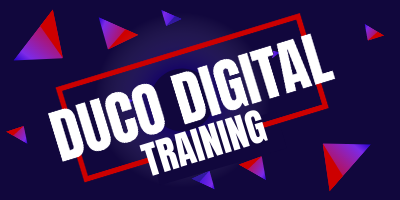
Introduction
In an era where digital transformation is more than just a buzzword, the role of a Digital Product Manager has evolved to become a linchpin in the complex machinery of modern business. With the acceleration of technological advancements and the increasing need for cross-functional collaboration, the expectations placed on Digital Product Managers have expanded exponentially. This article aims to offer an in-depth exploration of the intricate balance between technical expertise, soft skills, and stakeholder management that today’s Digital Product Managers must master.
The Balanced Skill Set: A Fusion of Technical Acumen and Soft Skills
Technical Skills: The Indispensable Foundation
Data Analytics
In a world awash with data, the ability to sift through the noise to extract actionable insights is invaluable. Digital Product Managers must not only be proficient in using advanced data analytics tools but also possess the analytical mindset to interpret complex data patterns. This skill is crucial for everything from user behaviour analysis to financial forecasting.
Software Development
Understanding the nuts and bolts of software development is no longer optional; it’s a necessity. A Digital Product Manager should be well-versed in various development methodologies like Agile, Scrum, or Lean, and understand how to collaborate effectively with development teams to bring a product from concept to market.
UX/UI Principles
The user experience is the soul of any digital product. A competent Digital Product Manager needs to have a deep understanding of UX/UI principles. This involves working closely with designers and user researchers to create intuitive, user-friendly interfaces that meet the needs and expectations of the target audience.
Soft Skills: The Catalyst for Success
Communication
The importance of effective communication cannot be overstated. Digital Product Managers often serve as the conduit between technical teams, business units, and external stakeholders. The ability to articulate complex technical concepts in a manner that is easily digestible for non-technical stakeholders is a skill that can set great product managers apart from good ones.
Emotional Intelligence
In the high-pressure environment of product development, emotional intelligence is key. The ability to empathise with team members and stakeholders, manage conflict, and build strong interpersonal relationships can significantly impact the product’s success and the team’s morale.
Strategic Thinking
Strategic thinking goes beyond day-to-day tasks. It involves long-term planning, setting achievable yet challenging goals, and aligning those goals with the overall business objectives. A Digital Product Manager with strong strategic thinking skills can guide the team through the complexities of product development while keeping an eye on the broader business landscape.
Effective Stakeholder Management: The Strategic Imperative
Decoding the Stakeholder Ecosystem
Stakeholder management is not just about keeping everyone informed; it’s a strategic function that involves a deep understanding of each stakeholder’s unique needs, expectations, and potential impact on the project. This requires a nuanced approach that considers the cultural, organisational, and even psychological factors that influence stakeholder behaviour.
Key Principles for Effective Stakeholder Management
Transparent Communication
Transparency is the cornerstone of trust. Open, honest, and timely communication can significantly enhance stakeholder relationships. This involves regular updates, transparent reporting, and an open-door policy for feedback and concerns.
Vision Alignment
Aligning stakeholders with the product vision is a complex but crucial task. It involves clearly articulating the product’s value proposition and how it fits into the broader business strategy, thereby ensuring that all stakeholders — internal and external — are on the same page.
Risk Mitigation
Every project comes with its set of risks, and stakeholders are often the first to be affected. Proactive identification of potential risks, followed by the development and implementation of mitigation strategies, can go a long way in building stakeholder confidence.
Continuous Feedback
Feedback is the lifeblood of continuous improvement. Establishing a structured feedback loop with regular checkpoints can provide invaluable insights into stakeholder needs and expectations, thereby allowing for timely adjustments in strategy and execution.
Conclusion
The role of a Digital Product Manager in today’s business environment is multifaceted and demanding. It requires a harmonious blend of technical expertise, soft skills, and the ability to manage a diverse array of stakeholders effectively. Mastering this complex skill set is not just beneficial for career progression but is vital for driving business success in this digital age.
For professionals looking to deepen their expertise and adapt to the evolving demands of this role, the BCS Practitioner Certificate in Digital Product Management offers a comprehensive, real-world framework. It serves as both an educational roadmap and a valuable credential, setting the stage for success in this challenging yet immensely rewarding field.


